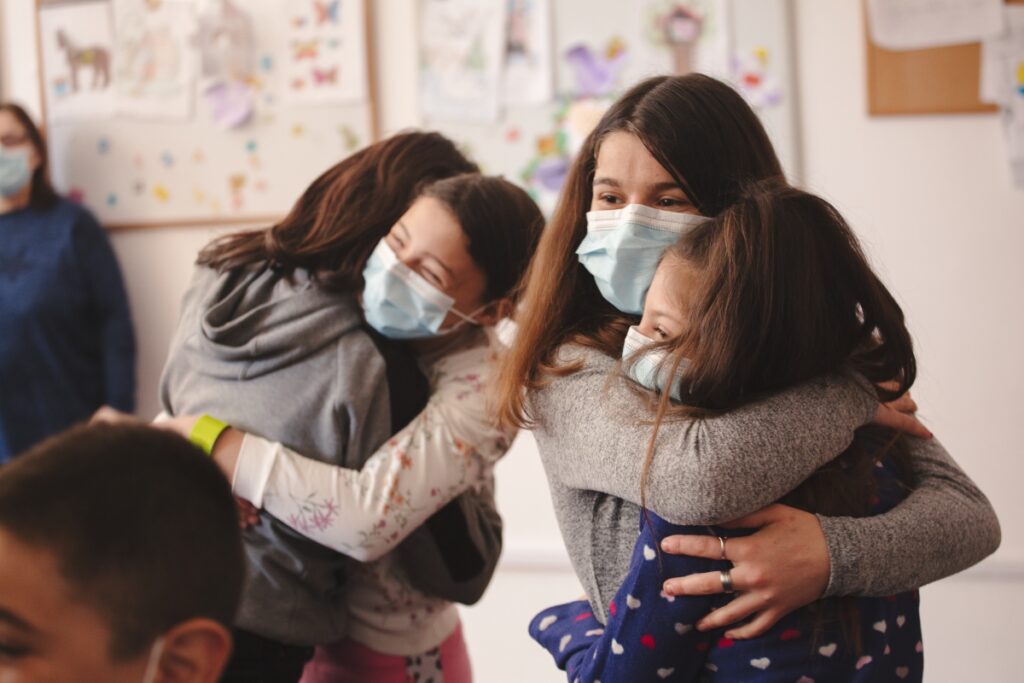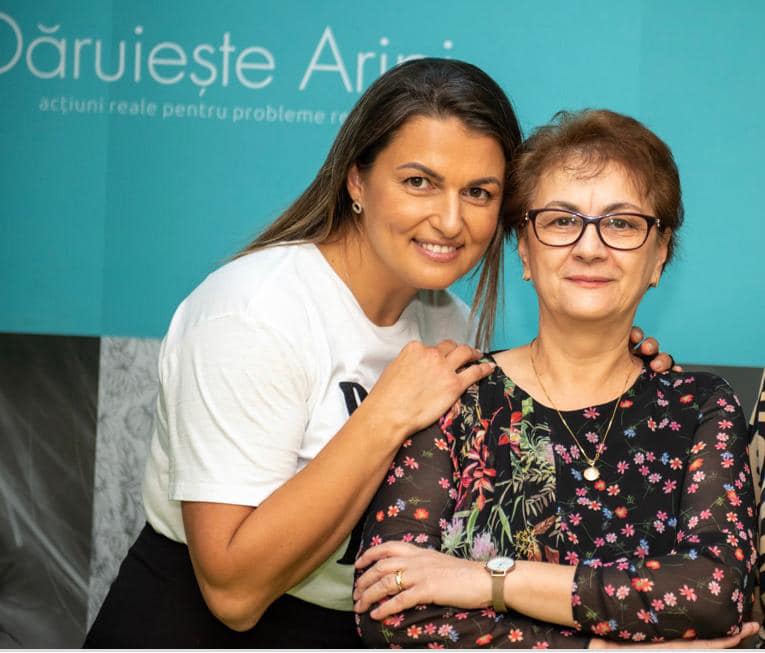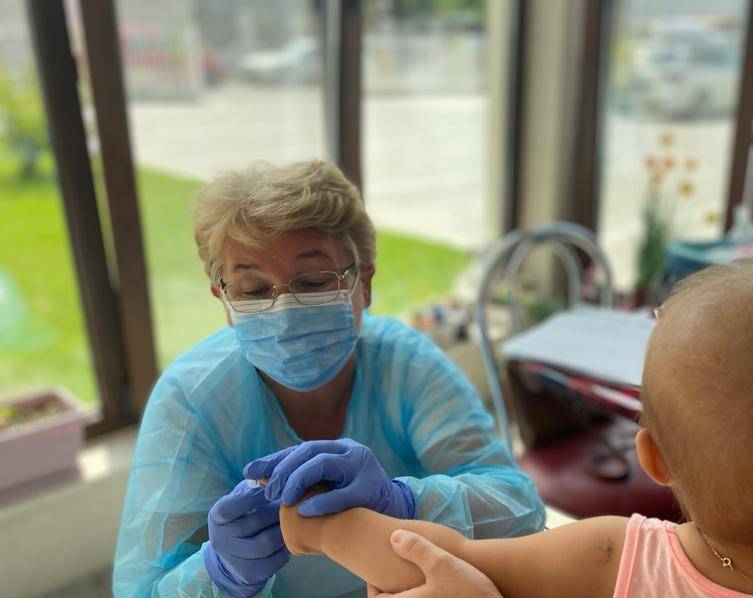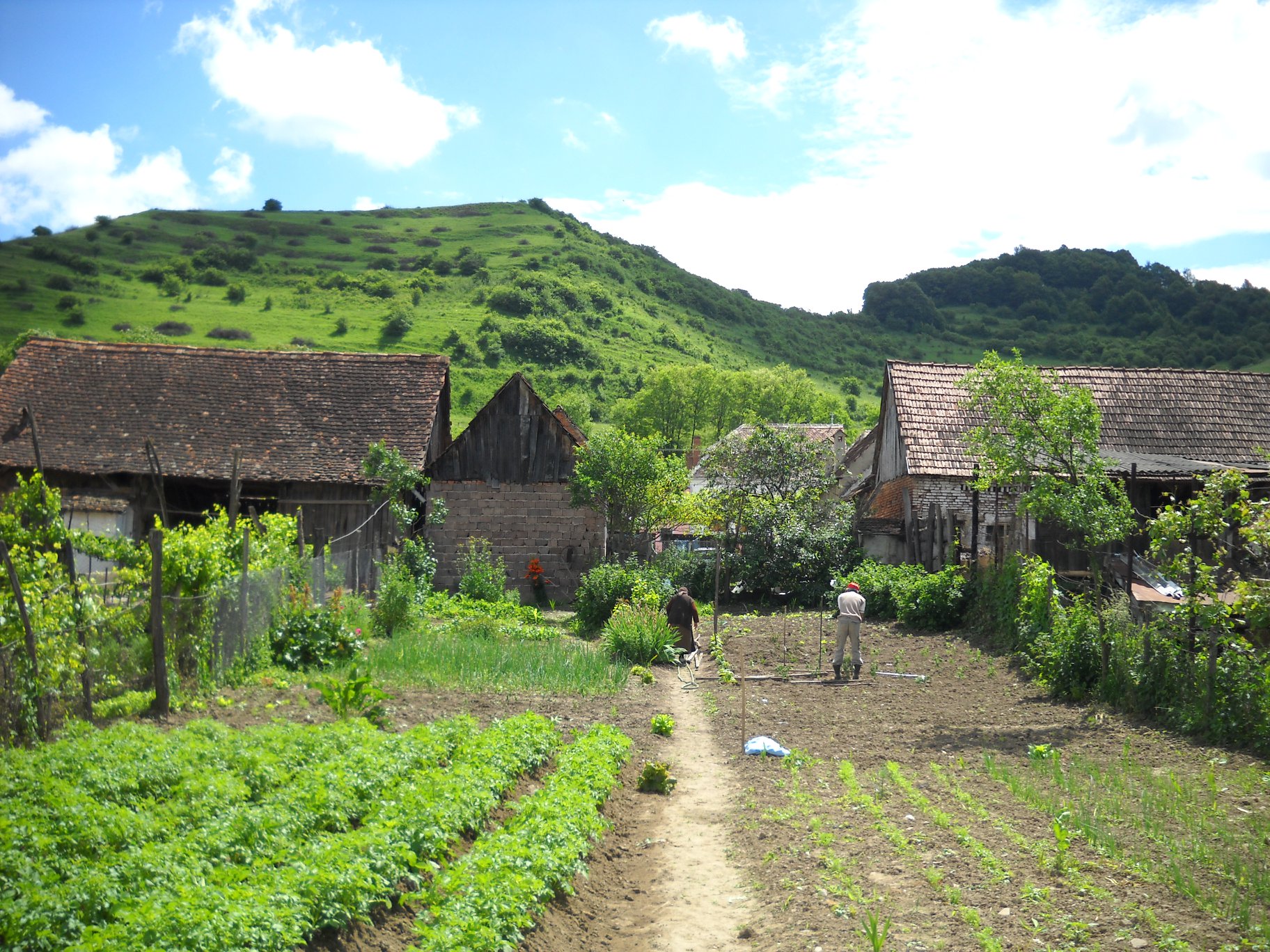Three Women & Three Decades in the Wellbeing Industry
A doctor, an entrepreneur and a journalist put their energy, time and patience to the test to change communities in the south of Romania.
By Andreea Pavel (Info Sud-Est)
Anna Burtea, Alina Pătrăhău and Alina Greavu are three women who are trying to do good. Their stories illustrate three different moments in Romania's recent history, when the difficulties faced by organizations in the good industry have changed, but never disappeared altogether. What are the shortcomings and obstacles that the three activists face on a daily basis?
1996: "The difference between a leprosy patient from the Middle Ages and an AIDS patient is that the last one did not have the bell that announced people to bypass it"
Anna Burtea was among the pioneers in the good industry. At the end of 1996, in a Romania barely awakened in democracy, with serious social problems, Anna founded, together with three friends, the "Heart of a Child" Foundation in Galați, an NGO specialized in social services. They created the organization to help four street children and 25 abandoned children in a hospital in Galați, all HIV positive. They needed an NGO mainly because they felt the need to create legitimacy in front of the community they were asking for help.
"These were very difficult times from an economic point of view for most of the Romanians, and people could not conceive that someone could consume their energies to help others, as long as most of them could not help themselves", recalls Anna Burtea, one of the founders of "Heart of a Child".

The road was winding. Anna and her colleagues talked about "donations", "NGO" and "AIDS" in a country that found it difficult to listen, among so many emergencies.
Bureaucracy and lack of legislation made their job very hard. But the most difficult was with money, recalls Anna Burtea: "I had a lot of ideas, projects, desires and too little money. All the founding members were recent college graduates or somewhat more mature people, but none of us had the income that would allow us to do everything we set out to do. We even borrowed money from our parents to create the fund needed to set up the organization."
Another major obstacle was noticed shortly after the establishment of the NGO, there was no "culture of good", and the donation was equated with begging.
In addition, there was very little compassion for children with AIDS. Anna Burtea makes a resemblance to the leprosy patients of In France of the Middle Ages, who received dark clothes and a bell to be recognized from a distance and bypassed. "Well, the only difference between the leprosy patient from the Middle Ages and the AIDS patient from Romania 25 years ago was the fact that the latter did not have the coat and the bell. Romania in those years had prejudices of the Middle Ages. That's what we've struggled with."
Today, the organization takes care of over 300 children in three main areas: education, social and health. Over the 25 years since its establishment, "Heart of a Child" has cared for over 15,000 beneficiaries.

There are still big problems, but they do not compare to the challenges at the outset.
A significant problem for the organization is the lack of predictability regarding the financial resource, aggravated by the COVID-19 pandemic. This is doubled by the instability of any kind of the Romanian society, especially by the increase in utility bills. The lack of state involvement for social NGOs is just a "bonus" to all this.
You never know if in the next year you will be able to afford to do as much as before, says Anna Burtea. There are also global problems, such as the huge increase in utility costs, which will hang very heavy: the organization has activities in three offices, for which it pays rent: the Day Center in Galați, the Counseling Center in Pechea and the Recovery Center. And above all, there is the pandemic, which has made families who benefited from services even more fragile, left children with great knowledge needs and redirected donor funds to areas considered of maximum urgency, such as health. This is because the state's financial contribution to social services remains very low: in the case of the NGO it represents, public money represents less than 5% of the budget.
The founder of "Heart of a Child" believes that a first step in easing the work of an NGO would be to improve the relationship with the state, in the sense of involving it more deeply in the social programs of organizations. The "culture of donations" should be more deeply rooted in the fiber of the community, and this should also be matched by a knowledge of legislation that allows firms to help organizations without actually taking money out of company budgets. People also need to gain confidence that the amounts donated to transparent and responsible NGOs in their community are producing effects.
If all goes well, the organization aims that, by the end of 2023, its programs will have an impact in the lives of at least 1,000 children in the south-eastern part of Romania.
2010: "At the launch of each project we encountered skepticism"
Alina Pătrăhău became known to the general public when she announced that the NGO she founded in 2013 will build a section for children suffering from cancer in Constanta.
Alina Pătrăhău left the business for volunteering following a grim episode for her family: her middle son was suspected of an incurable disease. The night before she found out the doctors' verdict, Alina Pătrăhău decided to dedicate her life to the children who suffer from the disease that devours the lives and hopes of many families.

He already had experience in this area. Between 2010 and 2013 he had done voluntary work without an NGO behind him. The first case in which he got involved was that of a 2-year-old boy, whom he helped get to treatment in Germany and get well. That case gave her wings and she began to look for other situations where her support could matter. He got involved in solving more than 3,000 cases that needed help. He realized then that, through an association, things would be much better organized, and help would reach more children faster.
"With each case I realized that I have a special force that I can use to do well, a force that I used previously to run my business, with good results but not as many satisfactions," Alina recalls. Constanta founded the Association "Daruieste Aripi" in 2013.
Today, the little boy helped by her at first is 13 years old. When she talks about the "Give Wings" mission, Alina often tells two stories, equally sad at first sight. "One of them, however, is the tragic story, of lack of chances, of access to health when you need it most. We have two children: Cristina, who is 15 years old and cancer for 2 years. He lives in an isolated village in Romania, 350 kilometres from the hospital. Since she was diagnosed she no longer goes to school and has no friends. Catalin is also 15 years old, the same type of cancer. But he lives in the city, close to the hospital, goes to school and has friends with whom he has fun. Catalin is part of the 70% of children with cancer who live because they have access to timely treatment and constant monitoring. As you have realized, Cristina is one of the other 30%, those who stay away from oncology centers and do not, in fact, have a real chance at life. We are here so that more and more children with cancer or diseases that threaten their lives have access to care, monitoring and treatments", says Alina Pătrăhău.

Alina Pătrăhău explains that working in a social NGO is complicated, but she is greatly relieved by the relationship with donors and volunteers, which she characterizes as "extraordinary". He explains this by the fact that the founders of "Daruieste Aripi" were themselves first donors and volunteers.
"After we started to grow, it was again complicated, because we had to look at everything from a different angle, to aim for a different impact, to always measure what we do and with what results. An audit in our NGO will be ready in December and will make it clear what is the imprint of the good we are doing. Choosing the best projects appropriate to our goals, as well as budgeting them, creating multidisciplinary teams – which involves a constant partnership with the hospitals and wards we work with – are also complicated stages."
However, the main obstacles in the projects carried out by "Daruieste Aripi" are, as in the case of the colleagues from "Heart of a Child", the lack of information and the skepticism that emerges from the bowels of the community.
As in the case of the NGO in Galați, the lack of state involvement is also felt in Constanta. In the case of "Daruieste Aripi", Alina Pătrăhău points to the lack of a national strategy, of a clear plan for the child suffering from cancer: "Until we have a vision in the approach of pediatric oncology, each of us, the NGOs that activate in the field, builds only some parts of a puzzle, but things will not work until they are assembled in a whole (...) Our dream is that all children in this country will benefit from uninterrupted treatment, monitored by the attending physician, who can reach them, if they can not reach the hospital."
2021: Donations raised in record time with the help of social media calls
Journalist Alina Greavu, now known on Instagram and Facebook with the name "Aluziva", managed to collect donations in record time, due to the very large influence she enjoys on social networks. Just two examples: two modern ambulances arrived in the courtyard of the "Grigore Alexandrescu" children's hospital in Bucharest, and a child with top school performance was able to pay her fee (which appeared after Brexit) at Oxford University, where she had been admitted to research biotechnologies that treat genetic diseases.
Recently, Alina Greavu made the decision to move from being a volunteer to creating an NGO to coordinate social actions. He made this decision because of the obstacles he faces on the logistical side, in the absence of a team and an organized framework. It will do similar actions to those before, but it will be able to organize its work better and will be more efficient":
"In addition, through an NGO I can implement projects for which to access funds or sponsorships from brands, which would help me achieve my goals much faster and help more beneficiaries," she explains.

The allusive does not know what her work will look like after being placed on the structure of an NGO, but she knows for sure that there are already enough organizations on the market, so she will have to seriously struggle for the causes she supports. He also knows that he won't have as much freedom as he does now to stop when he needs a little break, for example: "I suppose at NGOs things get a little complicated, that there are some expenses in the middle, maybe a rent of headquarters, some employees, an accountant — there are already some responsibilities that do not allow you to be so flexible. but I'll soon find out on my own skin."
Instead, Alina believes that such an organization will help her manage much more effectively the social actions she will carry out. Especially since, through it, it will have the possibility to direct the funds raised to the emergencies that may arise, instead of ad hoc mobilization on social networks:
"I am sure that it will be easier to help more cases, to develop my own campaigns through which to help in various situations and it will be easier to help a case when I know that I already have the necessary money in the NGO, than to have to struggle for a few days on Instagram to get it," she said.
PHOTO SOURCES:
- Archive of the Foundation "Heart of a Child"
- https://www.facebook.com/alina.patrahau
- https://www.facebook.com/Aluziva.ro/
OTHER ARTICLES
FOLLOW US
#cronicidefilantropie











No comment yet, add your voice below!